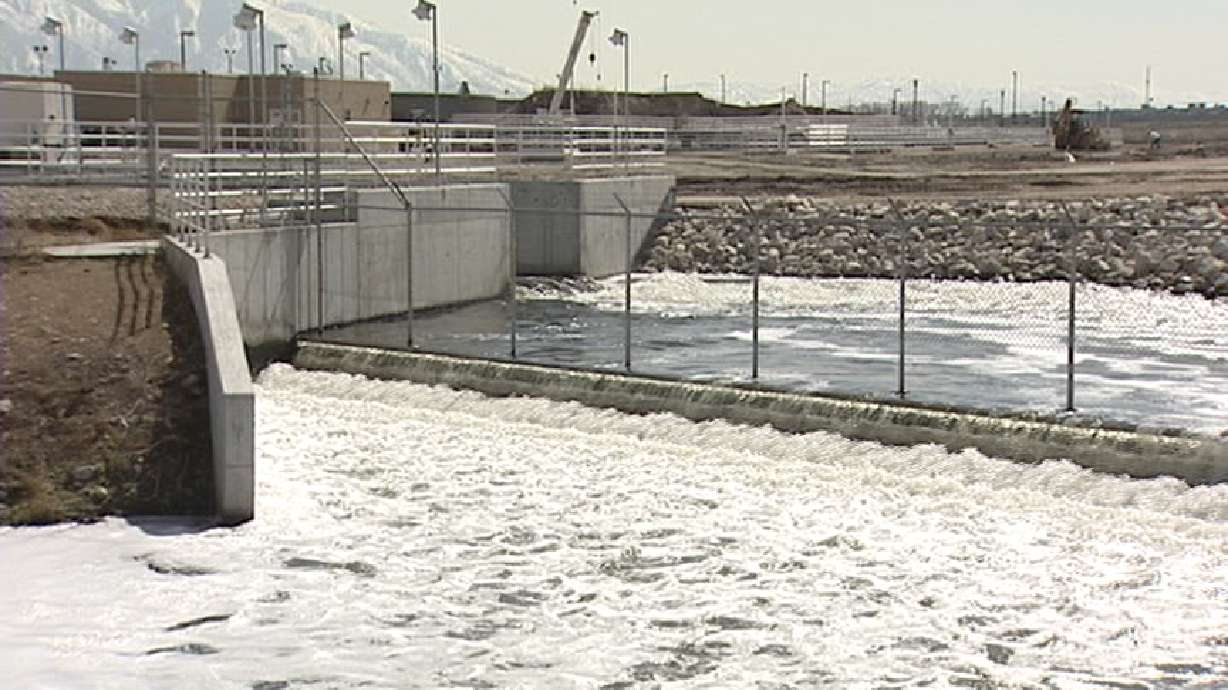Estimated read time: 2-3 minutes
This archived news story is available only for your personal, non-commercial use. Information in the story may be outdated or superseded by additional information. Reading or replaying the story in its archived form does not constitute a republication of the story.
John Daley ReportingIvan Weber, Environmental Consultant: "This is something that the environment cannot tolerate. Bird reproductive functions particularly are just destroyed."
He's describing the dangers of high levels of an element called selenium found in waste water that eventually makes its way to the Great Salt Lake. In a multi-count indictment, federal prosecutors charged one company with conspiring to break environmental laws. Now a metals refinery and two managers at a West Valley City plant face federal charges of polluting the water.
The U.S. Department of Justice issued a 29-count indictment against Johnson Matthey Inc., which refines gold and silver.
Federal prosecutors call this "egregious conduct." In this indictment from a grand jury, they accuse Johnson Matthey Inc. of hiding high levels of the chemical element selenium found in waste water coming from the metals refinery.
The Great Salt Lake boasts a unique but fragile environment. To protect its waters, federal law sets limits on toxic chemicals and substances which can be released into it. A 29-count indictment against silver and gold refining giant Johnson Matthey Inc. accuses the company and two former managers of "blatant disregard for the law." They're charged with "illegally discharging contaminated waste water"...and also a "concerted effort to cover it up."
Waste water from the plant goes through sewers to the Central Valley Water Reclamation Facility, and eventually out canals and the Jordan River to the lake. At the Reclamation Facility they test water samples from industries, which are responsible for monitoring themselves. When companies try to skirt the law, that causes big troubles.
Reed Fisher, General Manager, Central Valley Water Reclamation Facility: "Some things could happen where we'll either violate our permit or they could even actually affect the operation of the treatment plant."
The company is charged with hiding discharges of selenium-contaminated water in excess of permit limits, including by "cherry-picking samples of wastewater with low-selenium content to give to labs for testing and by diluting wastewater with fresh water from a host in order to misrepresent the concentration of selenium discharged.
Ivan Weber, Weber Sustainability Consulting: "In this case, it sounds like they were actually distorting results by a catalogue of tactics, and that's not right."
Conservation groups say the case points out the dangers of industry essentially regulating itself, with a potentially deadly impact to birds and other wildlife.
Lynn DeFreitas, Exec. Director, Friends of Great Salt Lake: "It can impact the development of the eggs, certainly the development of offspring."
The company declined our request for an on-camera interview today, but in a press release, their attorneys say Johnson Matthey "takes these charges very seriously and has been pro-active in its own investigation."
An initial court appearance is scheduled for next month.









